detail profile ethel barrymore
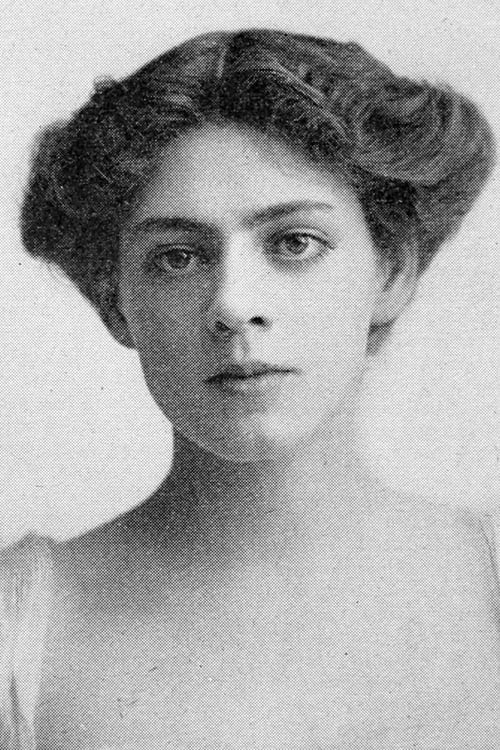
Ethel Barrymore
Ethel Mae Blythe
atau dikenal sebagai
Riwayat Hidup
Ethel Barrymore was the second of three children seemingly destined for the actor's life of their parents Maurice and Georgiana.
Maurice Barrymore had emigrated from England in 1875, and after graduating from Cambridge in law had shocked his family by becoming an actor.
Georgiana Drew of Philadelphia acted in her parents' stage company.
The two met and married as members of Augustin Daly's company in New York.
They both acted with some of the great stage personalities of the mid Victorian theater of America and England.
The Barrymore children were born and grew up in Philadelphia.
Though older brother Lionel Barrymore began acting early with his mother's relatives in the Drew theater company, Ethel, after a traditional girl's schooling, planned on becoming a concert pianist.
The lure of the stage was perhaps congenital, however.
She made her debut as a stage actress during the New York City season of 1894.
Her youthful stage presence was at once a pleasure, a strikingly pretty and winsome face and large dark eyes that seemed to look out from her very soul.
Her natural talent and distinctive voice only reinforced the physical presence of someone destined to command any role set before her.
After the opportunity to appear on the London stage with English great Henry Irving in "The Bells" (1897) and later in "Peter the Great" (1898), she returned to New York to star in the Clyde Fitch play "Captain Jinks of the Horse Marines" (1901) (produced by her friend and benefactor Charles Frohman), which brought her initial American acclaim.
Lead roles, such as Nora in Henrik Ibsen's "A Doll's House" (1905) and starring in "Alice By the Fire" (also 1905), "Mid-Channel" (1910) and "Trelawney of the Wells" (1911) proved her popularity as a warm and charismatic star of American stage.
In the meantime she married stockbroker Russell Griswold Colt in 1909 and gave birth to three children while continuing her acting career.
Although the stage was her first love, she did heed the call of the silver screen, and though not achieving the matinée idol image that younger brother John Barrymore garnered in silent movies after similar chemistry on stage, she won over audiences from her first film appearance in The Nightingale (1914).
However, her early film roles, steady through 1919, took a back seat to continued stage triumphs: "Declassee" (1919), her impassioned Juliet in "Romeo and Juliet" (1922), "The Second Mrs.
Tanqueray" (1924) and, especially, "The Constant Wife" (1926).
She harnessed her considerable talents in the role of an activist as well, being a bedrock supporter of the Actors Equity Association and, in fact, had been a prominent figure in the actors strike of 1919.
By 1930 she was entering middle age and her movie roles reflected this.
Except for Rasputin and the Empress (1932) with her brothers, the roles were elderly mothers and grandmothers, dowager ladies and spinster aunts.
Perhaps wisely she put off Hollywood for over a decade, with stage work that included her most endearing role in "The Corn is Green" (a tour that lasted from 1940 to 1942).
She finally moved to Southern California in 1940.
When she passed away in 1959, she was interred near her brothers at Calvary Cemetery in East Los Angeles.
Info Pribadi
Peran Yang Di Mainkan Ethel Barrymore
 The story of the goldplated statuette...
The story of the goldplated statuette...And the Oscar Goes To... 2014
The story of the gold-plated statuette that became the film industry's most coveted prize, AND THE OSCAR GOES TO... traces the history of the Academy itself, which began in 1927 when Louis B. Mayer, then head of MGM, led other prominent members of the industry in forming this professional honorary organization. Two years later the Academy began bestowing awards, which were nicknamed "Oscar," and quickly came to represent the pinnacle of cinematic achievement.
 Various MGM stars from yesterday present...
Various MGM stars from yesterday present...That's Entertainment! 1974
Various MGM stars from yesterday present their favorite musical moments from the studio's 50 year history.
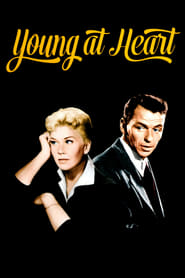 The lives and romances of three...
The lives and romances of three...Young at Heart 1954
The lives and romances of three sisters in a musical family; the youngest daughter's life is complicated by the subsequent arrival of a charming composer and a cynical music arranger.
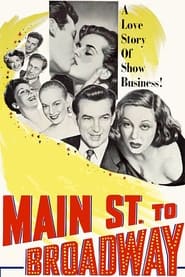 In New York a surly downonhisheels...
In New York a surly downonhisheels...Main Street to Broadway 1953
In New York, a surly, down-on-his-heels playwright meets a country girl who's giving up trying to act and returning home. He goes with her for inspiration when his agent convinces a stage star to take his next effort. When he returns to Broadway, his girl stays behind and starts seeing a local businessman.
 Comprised of eight unrelated episodes of...
Comprised of eight unrelated episodes of...It's a Big Country 1951
Comprised of eight unrelated episodes of inconsistent quality, this anthology piece of American propaganda features some of MGM Studios' best directors, screenwriters and actors; it is narrated by Louis Calhern. Stories are framed by the lecture of a university professor. In one tale a Boston resident becomes angry when the census forgets to record her presence. Another sketch chronicles the achievements of African Americans while still another pays tongue-in-cheek tribute to Texas.
 Mary Herries has a passion for...
Mary Herries has a passion for...Kind Lady 1951
Mary Herries has a passion for art and fine furniture. Even though she is getting on in years, she enjoys being around these priceless articles. One day she meets a strange young painter named Elcott, who uses his painting skill to enter into her life. Little does she expect that his only interest in Mary is to covet everything she has.
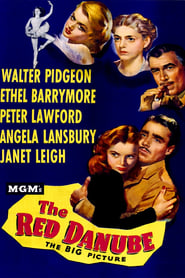 A Russian ballerina in Vienna tries...
A Russian ballerina in Vienna tries...The Red Danube 1949
A Russian ballerina in Vienna tries to flee KGB agents and defect.
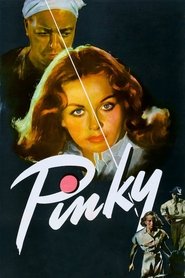 Pinky a light skinned black woman...
Pinky a light skinned black woman...Pinky 1949
Pinky, a light skinned black woman, returns to her grandmother's house in the South after graduating from a Northern nursing school. Pinky tells her grandmother that she has been "passing" for white while at school in the North. In addition, she has fallen in love with a young white doctor, who knows nothing about her black heritage.
 Stigmatized from infancy by the fate...
Stigmatized from infancy by the fate...Moonrise 1948
Stigmatized from infancy by the fate of his criminal father, a man is bruised and bullied until one night, in a fit of rage, he kills his most persistent tormentor. As the police close in around him, he makes a desperate bid for the love of the dead man’s fiancée, a schoolteacher who sees the wounded soul behind his aggression.
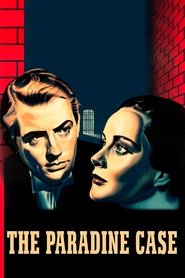 Attorney Anthony Keane agrees to represent...
Attorney Anthony Keane agrees to represent...The Paradine Case 1947
Attorney Anthony Keane agrees to represent Londonite Mrs. Paradine, who has been fingered in her husband's murder. From the start, the married lawyer is drawn to the enigmatic beauty, and he begins to cast about for a way to exonerate his client. Keane puts the Paradine household servant on the stand, suggesting he is the killer. But Keane soon loses his way in the courtroom, and his half-baked plan sets off a stunning chain of events.
 When a musichall dancer is murdered...
When a musichall dancer is murdered...Moss Rose 1947
When a music-hall dancer is murdered, a moss rose marks the page of a Bible next to her body. Luckily, another chorus girl saw a gentleman leaving the lodgings. She approaches him directly, saying she'll go to the police if he doesn't meet her demands, but he brushes her off contemptuously. When he learns she's dead serious, he tries to buy her off with a thick wad of pound notes. But it's not money she's after; all she wants is two weeks at his country estate, living the life of a lady.
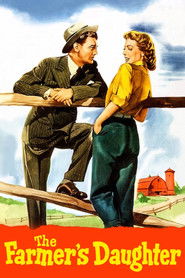 After leaving her familys farm to...
After leaving her familys farm to...The Farmer's Daughter 1947
After leaving her family's farm to study nursing in the city, a young woman finds herself on an unexpected path towards politics.
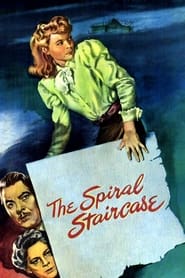 On a stormy night the mute...
On a stormy night the mute...The Spiral Staircase 1946
On a stormy night, the mute servant to an ailing matriarch is stalked by a serial killer.
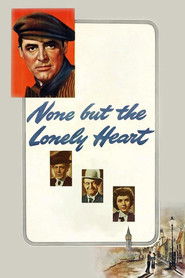 When an itinerant reluctantly returns home...
When an itinerant reluctantly returns home...None But the Lonely Heart 1944
When an itinerant reluctantly returns home to help his sickly mother run her shop, they're both tempted to turn to crime to help make ends meet.
 A multistudio effort to show the...
A multistudio effort to show the...Show-Business at War 1943
A multi-studio effort to show the newsreel audience the progress of the Hollywood war effort.
 Passengers on an ocean liner recall...
Passengers on an ocean liner recall... With three days before his paper...
With three days before his paper...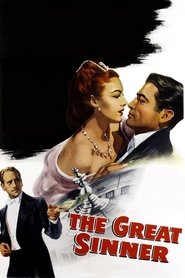 A young man succumbs to gambling...
A young man succumbs to gambling...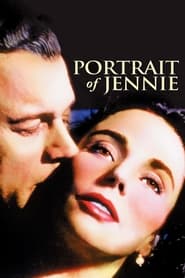 A mysterious girl inspires a struggling...
A mysterious girl inspires a struggling...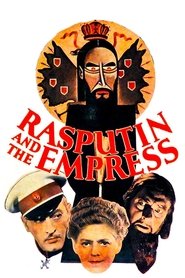 The story of corrupt powerhungry manipulative...
The story of corrupt powerhungry manipulative...